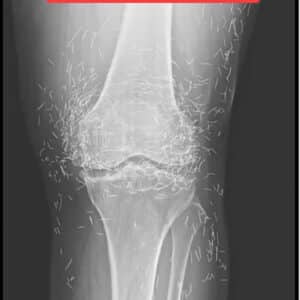One minute I was being fitted for handcuffs in my imagination—fraud, prison, headlines, the loss of my son. The next, my mute thirteen-year-old stood up in court and detonated the lie my husband had built around me.
I’m Amelia, 37. I run a small branding agency outside Portland—nothing flashy, just honest work I built from grit and insomnia. My husband, Peter, is 39: charming, practiced, always with the right line for strangers and the wrong one for me. We have a son, Liam. He’s never spoken a word. No diagnosis. No damage. He reads, writes, signs, and sees through people like glass.
Two months ago, two officers walked into my office with a warrant. “Evidence of fraud,” they said. Spreadsheets. Transfers. Emails with my signature. My attorney, Danielle, flipped through the stack and exhaled. “This is too perfect. Whoever did this lives inside your systems.”
Peter’s face in court was a study in concerned husband. Behind him sat Jesse, the “coworker” he swore I was paranoid about. The prosecutor laid out their case with the confidence of someone sure of the ending. I felt untethered—like I was watching a movie where I was the villain and couldn’t remember the scenes.
Then Liam raised his hand.
The judge paused. “Does the young man wish to address the court?”
Liam didn’t speak. He stepped forward, palms steady, and requested paper. He wrote fast, chin set, then handed the note up.
“I have a recording. Mom is innocent. Dad and his girlfriend framed her.”
The room inhaled as one. Peter went white. Jesse froze. Liam produced a small digital recorder. The bailiff passed it to the judge, who nodded for it to be played.
Static. Then Peter’s voice, unmistakable:
“We just need everything transferred quietly. If the documents match, they’ll think she’s been siphoning for months.”
Jesse: “She’ll go down hard. No one will suspect a thing. The kid won’t talk. He can’t.”
Peter laughed. “Exactly. And once she’s out, we move him to that facility in Montana. He won’t be our problem anymore.”
The sound left my lungs. Somewhere behind me, a pen hit the floor. Liam’s hand found mine and squeezed; his grip was warm and certain.
Peter lurched to his feet. “Your Honor, that’s out of context—edited—”
“Sit down, Mr. Brighton,” the judge said, voice gone to steel. “Recess. The audio will be authenticated immediately.”
Danielle leaned in, whispering, “That’s it. That’s the crack.”
When we reconvened, the prosecutor’s tone had changed. “In light of new, corroborated evidence of conspiracy and child endangerment, the State moves to dismiss all charges against Mrs. Brighton with prejudice and requests immediate action against Mr. Brighton and Ms. Hale.”
“Granted,” the judge said. “Mrs. Brighton, you are cleared. Mr. Brighton, Ms. Hale, you are under arrest.”
Cuffs. Protests. Useless. Peter glared at me as the bailiff turned him. “You ruined everything.”
“No,” I said, keeping my arm around Liam. “You did.”
We went home to pizza under a blanket and a movie we barely watched. Liam wrote on his notepad: I knew something was wrong. I heard them. I wanted to help you.
“You saved me,” I said. He leaned into my shoulder, lighter than I’d seen him in years.
The fallout came fast. My business wobbled, then steadied as the truth spread. Clients called. Friends I hadn’t heard from in forever texted. Peter and Jesse started pointing fingers from separate cells. Typical.
Some mornings I still wake with a courtroom in my chest, ready to argue for my own life again. Then I see Liam padding into the kitchen, hair wild, eyes soft, and remember: we won. The judge called what he did a “silent testimony.” It fits. Liam didn’t need a voice to speak the loudest truth in the room.
Strength doesn’t always roar. Sometimes it’s a boy with a recorder and a notepad, standing up while everyone else sits down.
I’ll never forget the sound of his silence that day.
It saved my life.





